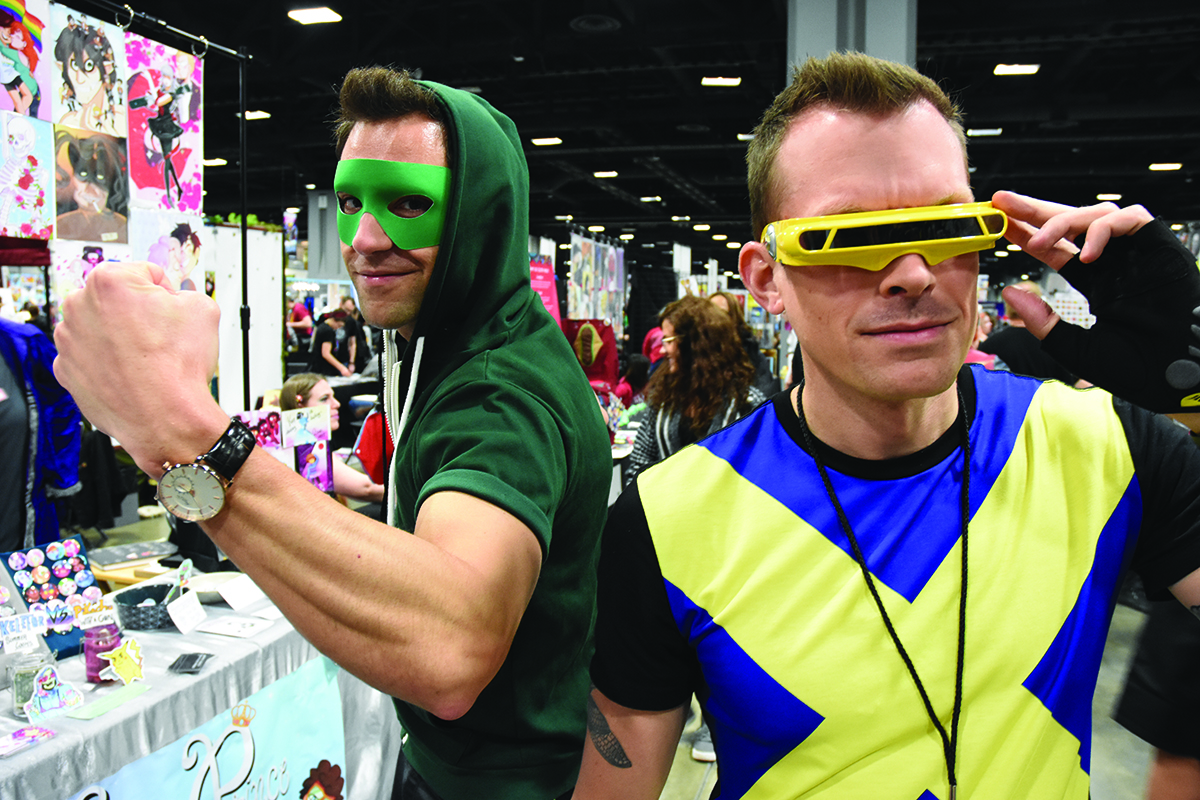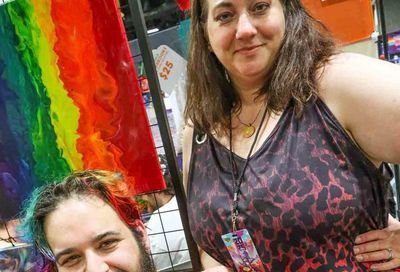Comic Culture
A documentary exploring the devotion of Comic-Con fans is long on love, slight on scrutiny
Fandom has reached something akin to a roaring pitch on the fringes of today’s pop culture. For every hit television show or movie, dozens of critics abound to summarize and analyze what’s what. This is a good thing: People, now more than ever, have opportunities to discuss and debate the things they love. And with Comic-Con Episode IV: A Fan’s Hope, Morgan Spurlock wants us to know how very much they do.
But understanding why they’re loved? Now that’s something completely different.

Comic-Con Episode IV: A Fan’s Hope
Difference, it seems, is the glue of A Fan’s Hope. The subjects define their own norms at Comic-Con International, a four-day convention that draws more than 100,000 to San Diego every year. Even among those masses, they stand out for their devotion. One designs costumes for a Mass Effect-inspired show. A pair separately dream of drawing professionally. Another hopes the convention will bail out his retail comic book store. A collector sprints through hallways to buy an ”18-inch Galactus,” and a baby-faced waif even plans to propose to his girlfriend in Hall H, ground zero for the convention’s most in-demand events. And, unlike most of his documentaries – meaning it’s the starkest difference of all – Spurlock stays behind the camera in this one.
The result is an entertaining, even if too mild, examination of fans in a rapidly commercialized environment. There’s little to no condescension in A Fan’s Hope. Spurlock seems to understand that his subjects shouldn’t be ridiculed for their passions – and those passions shine through brilliantly, with an amiable hue. And yet, that’s the fundamental problem with the documentary. While it’s clear Comic-Con has outgrown these super-fans and become a testing ground for money-making ventures, Spurlock doesn’t cut with the wry criticism that made him famous in Super-Size Me.
It’s not as if A Fan’s Hope isn’t worthwhile, or ultimately satisfying. It’s just that it reaches those gentle heights the same way that every half-decent documentary that intercuts a narrative with talking heads does. When faced with a cultural conflict that touches on larger, legitimate questions about how we interact with what we read, watch and listen to – in coarser terms, what the ugly marriage between fans and corporate interests looks like – Spurlock punts the controversy and focuses instead on the boundless glee that Comic-Con can inspire.
There is a ton of that, by the way. Comic superstars such as Joss Whedon, Stan Lee, Kevin Smith, Robert Kirkman and Grant Morrison show up to bolster A Fan’s Hope‘s credibility, offering their thoughts and memories about Comic-Con. They emphasize its importance within the comic sub-culture, both generally and personally, while serving as a reminder of the convention’s greatest sell: It’s a place where fans and creators can meet to geek out together. If nothing else, Spurlock excels at capturing and sharing that enthusiasm.

A Fan’s Hope is funny, revealing and incredibly encouraging to fan culture. As a piece of entertainment, it succeeds. All the other stuff – the stuff that documentaries are supposed to be made of – is where it doesn’t. Spurlock has a great eye for hypocrisy and a track record of spinning it with trenchant analysis of relatable social issues. That he doesn’t do the same here is disappointing, but not an insurmountable failure.
(Pardon the conspiracy theory that’s about to follow.)
It would be, however, if those commercial interests are why A Fan’s Hope is so tepid. Whedon and Lee, both credited executive producers and both tied to Marvel Studios, have a vested interest in the growing value of Comic-Con as a marketing juggernaut. Would they have allowed a harsher documentary to be released? Did their presence chill the criticism about Comic-Con that Spurlock occasionally winks at? Obviously, I don’t know. But it’s worth considering.


 and a half
and a halfStarring
Stan Lee, Eli Roth, Kevin Smith
Rated PG-13
88 Minutes
Opens April 13
West End Cinema
Or, in fan-speak: I watched Comic-Con Episode IV: A Fan’s Hope to find out who shot first. Instead, I was left wondering why they didn’t.
Morgan Spurlock will appear for a Q&A Friday, April 13. Check westendcinema.com for details.
Support Metro Weekly’s Journalism
These are challenging times for news organizations. And yet it’s crucial we stay active and provide vital resources and information to both our local readers and the world. So won’t you please take a moment and consider supporting Metro Weekly with a membership? For as little as $5 a month, you can help ensure Metro Weekly magazine and MetroWeekly.com remain free, viable resources as we provide the best, most diverse, culturally-resonant LGBTQ coverage in both the D.C. region and around the world. Memberships come with exclusive perks and discounts, your own personal digital delivery of each week’s magazine (and an archive), access to our Member's Lounge when it launches this fall, and exclusive members-only items like Metro Weekly Membership Mugs and Tote Bags! Check out all our membership levels here and please join us today!























